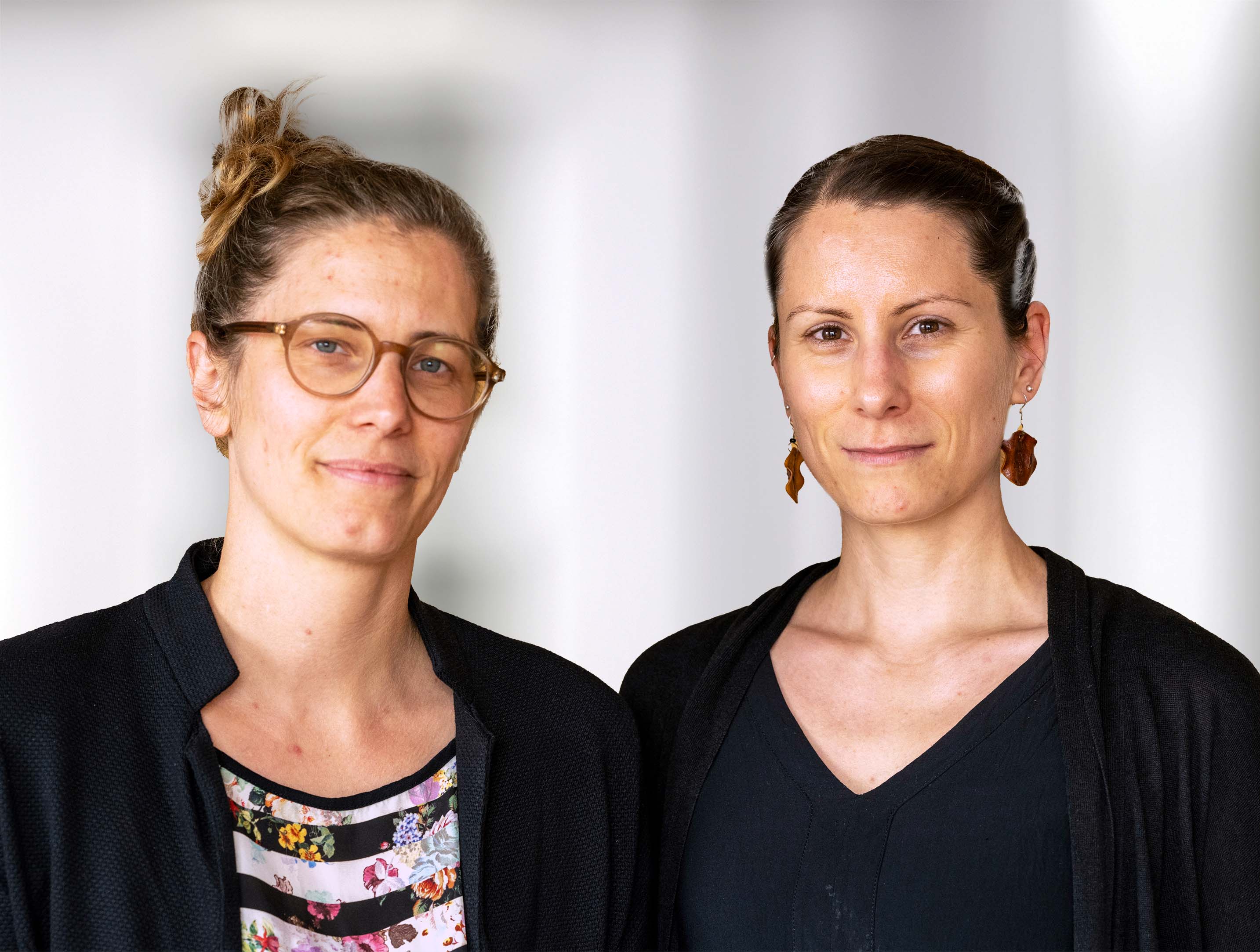Dual Leadership for Freiburg’s Management at the Sustainability Innovation Campus
Freiburg, Jun 05, 2024
“I was sure at once: I want this job, because I find working at the Sustainability Innovation Campus (ICN) unbelievably enjoyable, but I was also sure – for various reasons – that I didn’t want to do it alone.” That is how Dr Dörte Peters recalls her response to the advertisement for the job she now holds. At the time Peters, by background a sustainability researcher, had already been Freiburg’s coordinator for six months with joint responsibility for the development of the ICN, which the University of Freiburg together with the Karlsruhe Institute of Technology (KIT) established using federal state resources. With its guiding principle ‘Transformations for Urban Regions of the Future: Climate Protection, Resource Conservation, and Well-Being’ the ICN works towards comprehensive systemic innovations along with a network of actors from science, industry, politics, administration, and civil society, with the aim of contributing to the ‘great transformation’ into a sustainable society.
Shortly before Christmas, Peters sent an email to Dr Nina Kulawik, human geographer and coordinator for the key area ‘Pathways to Sustainability’, with an unusual question: should we apply for the ICN management role in tandem? After several discussions the two decided that their profiles complemented each other well. And, in the end, the appointment committee reached the same conclusion: “Their diverse and complementary experiences and skills were a genuine added value for the management of the ICN,” says Melanie Arndt, Vice Rector for Internationalisation and Sustainability. “That convinced us.”

Dr. Dörte Peters und Dr. Nina Kulawik. Photo: Patrick Seeger
Shared values, divided tasks
“Sustainability is a value we both support,” says Kulawik, “and our concept of teamwork is similar too.” The two like to work independently, with good communication, but, Peters says, “We don’t want to be watching each other’s every move.” The division of roles works well for them – whether concerning their areas of specialism or their schedules. If one goes to a conference, the other is still available at the office. While Peters primarily handles communications with the funding ministry and the research committee which is shared by UFR and KIT, Kulawik contributes her existing network in the innovation ecosystem. “We always keep each other up to date so that we can fill in for each other,” says Kulawik. When she is on holiday she can be sure she will not be “returning to chaos.” They put their heads together for strategic considerations and decide who will be in charge of specific areas.
Opportunity for the university in an intense skills shortage
Tandem solutions like this demand strong trust – both between the tandem partners and on the part of the organisation. “Companies should take a chance!” says Kulawik. The higher costs for aspects such as administration or equipping two workspaces instead of one are offset by one major gain: “Greater competence,” believes Peters, “and greater enjoyment of responsibility – because it’s nice being a managing director, but also challenging, and it helps to be able to share this, the successes and the difficulties.”
With this tandem solution, the University of Freiburg has also been able to retain the expertise, networks and experience of two people who they might otherwise have lost. “We both come from mid-level academia, of course,” says Kulawik. “We had both obtained our doctorates and didn’t know whether we would try again at the university if we didn’t get the co-management. So we are extremely happy that the university was so open to it.”
Openness and flexibility are important in an increasingly intense skills shortage, says Melanie Fritscher-Fehr, head of the Department of Equality, Diversity and Academic Personnel Development: “It’s crucial that we attract and also retain people who bring practical experience and above all hybrid knowledge from science and academic management.”
Enrichment from other activities
Peters and Kulawik also appreciate their 50 percent positions, and believe both they and the ICN benefit from them. “I want to spend afternoons with my children,” says Peters, “and have always done other things besides my main job, for example volunteering for associations and teaching at a college. I find it extraordinarily enriching.” Kulawik shares this experience. While she does not have children or act as a carer and all-in-all she works full time, it is not exclusively for one employer: “I just find it inspiring to be able to do other things, for example teaching or being a workshop organiser. These independent activities also influence my work at ICN – and so I look forward to it every day.” Every day means: four days a week, because both managing directors have one day off from the ICN. For other work, for children, friends, family, leisure, quality of life.

